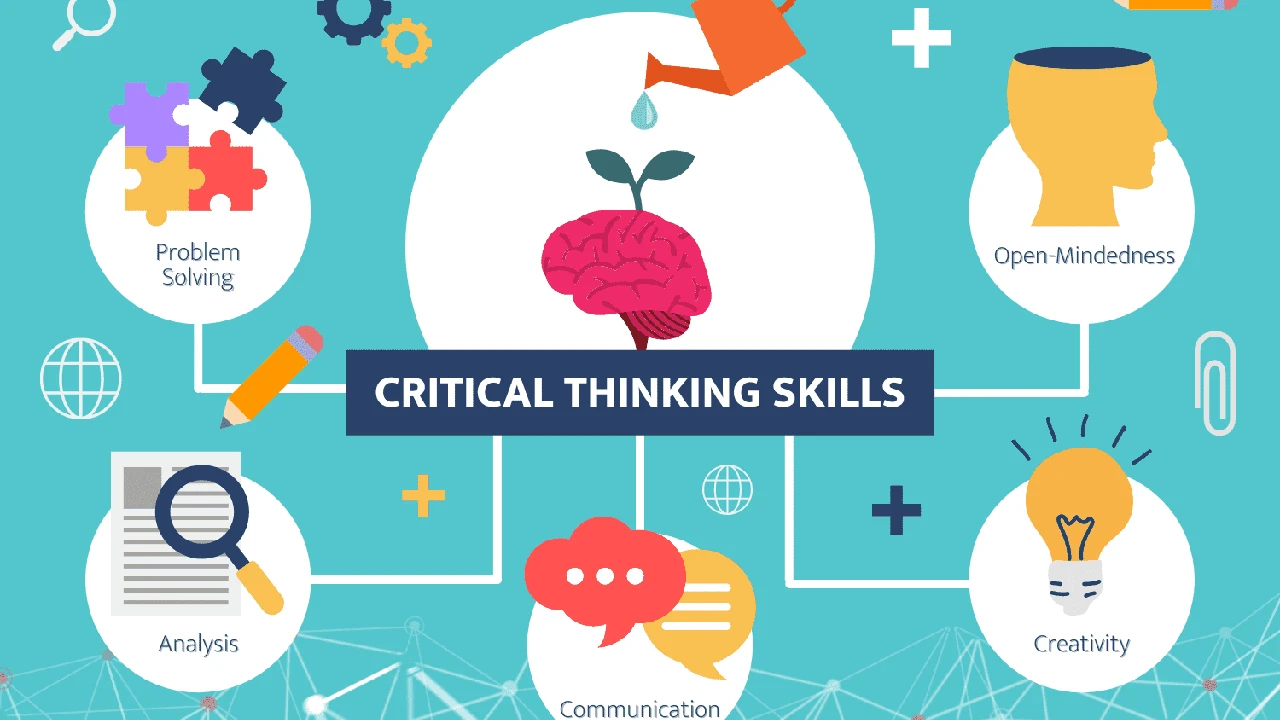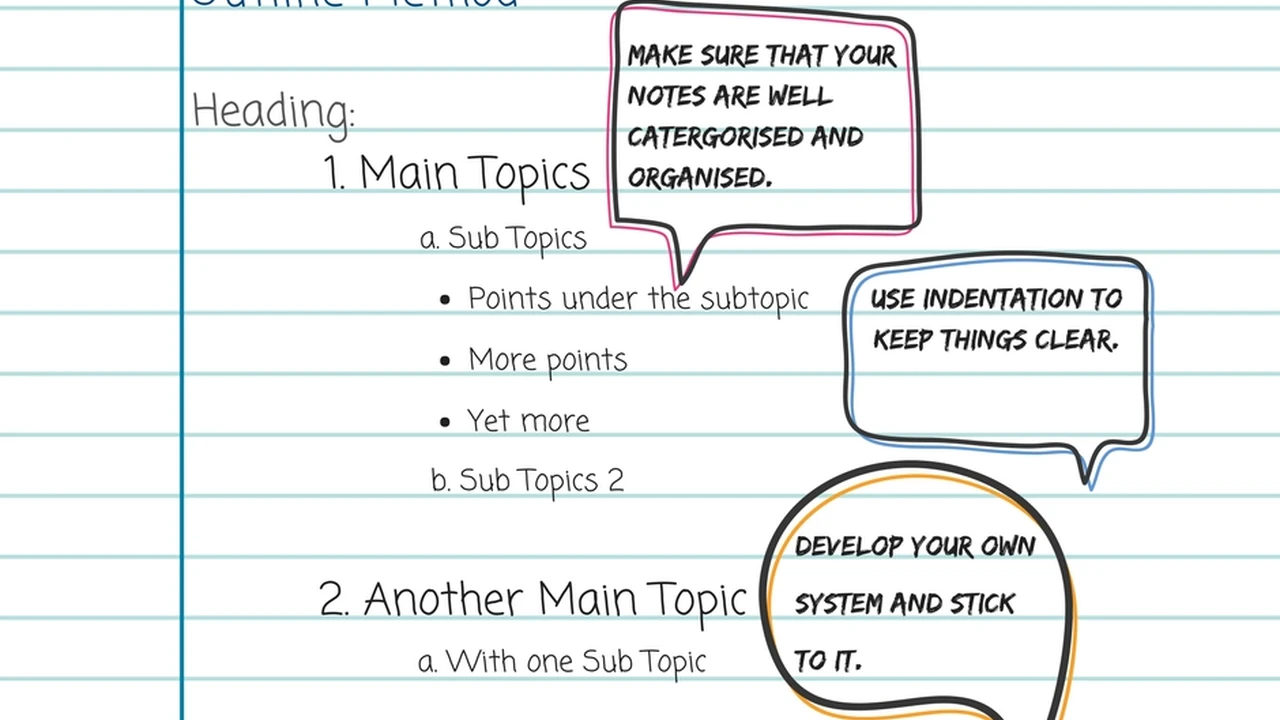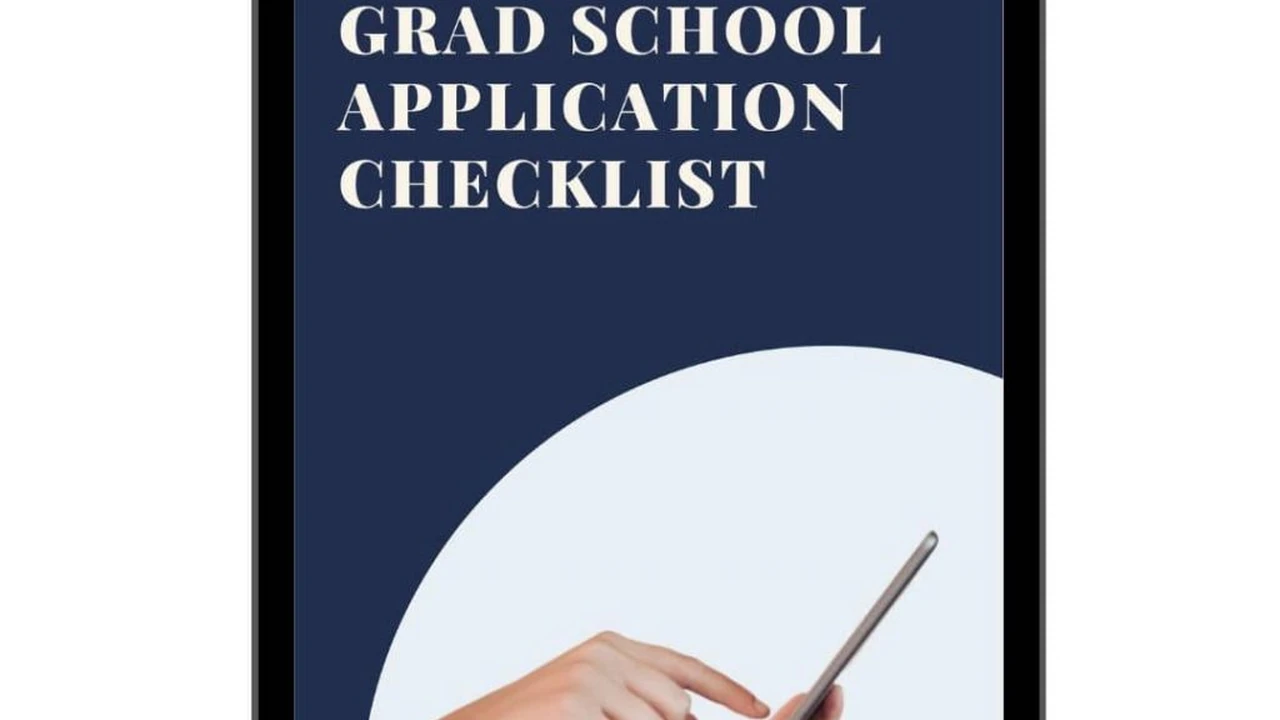Developing Critical Thinking Skills for University
Enhance your analytical abilities by developing critical thinking skills for university. Approach complex problems with a reasoned perspective.

Developing Critical Thinking Skills for University
Understanding Critical Thinking What It Means for Students
So, you're heading to university, or maybe you're already there, and everyone keeps talking about 'critical thinking.' But what exactly is it? It's not just about being smart or knowing a lot of facts. Critical thinking is about actively and skillfully conceptualizing, applying, analyzing, synthesizing, and evaluating information gathered from, or generated by, observation, experience, reflection, reasoning, or communication, as a guide to belief and action. In simpler terms, it's about thinking clearly and rationally, understanding the logical connection between ideas. It's about being an active learner, not just a passive recipient of information. This skill is absolutely vital for success in higher education and beyond. It helps you dissect complex arguments, identify biases, and form well-reasoned conclusions. Without it, you might find yourself just memorizing facts without truly understanding their implications or how they connect to the bigger picture. Think of it as your intellectual superpower, allowing you to navigate the vast sea of information you'll encounter at university.
Why Critical Thinking is Essential for Academic Success and Beyond
Why should you care about critical thinking? Well, for starters, it's the backbone of academic success. Every essay, every research project, every debate in a seminar will require you to think critically. You'll need to evaluate sources, construct coherent arguments, and defend your positions. Professors aren't just looking for you to regurgitate information; they want to see that you can engage with it, question it, and contribute new insights. Beyond the classroom, critical thinking is a highly sought-after skill in the job market. Employers want graduates who can solve problems, make informed decisions, and innovate. Whether you're in business, science, arts, or engineering, the ability to think critically will set you apart. It helps you adapt to new situations, analyze complex data, and communicate effectively. It's also crucial for navigating the complexities of modern life, from evaluating news sources to making personal financial decisions. In a world flooded with information, the ability to discern truth from falsehood and make sound judgments is more valuable than ever.
Key Components of Critical Thinking Analysis and Evaluation
Critical thinking isn't a single skill; it's a combination of several interconnected abilities. Two of the most important are analysis and evaluation. Analysis involves breaking down complex information or arguments into smaller, more manageable parts. This means identifying the main points, supporting evidence, assumptions, and conclusions. For example, when reading a research paper, you'd analyze its methodology, data, and interpretations. Evaluation, on the other hand, is about judging the quality, credibility, and relevance of that information. Is the evidence strong? Are the arguments logical? Are there any biases? You're essentially asking: 'Is this information reliable and useful?' This might involve comparing different perspectives, checking for consistency, and considering alternative explanations. For instance, if you're researching a historical event, you'd evaluate primary and secondary sources for their accuracy and potential biases. Mastering these two components allows you to move beyond simply understanding information to truly engaging with it on a deeper level.
Practical Strategies for Developing Critical Thinking Skills in University
So, how do you actually develop these skills? It's not something you learn overnight, but through consistent practice. Here are some practical strategies you can start implementing today:
Question Everything Asking the Right Questions for Deeper Understanding
One of the most fundamental aspects of critical thinking is asking questions. Don't just accept information at face value. When you're reading a textbook, listening to a lecture, or engaging in a discussion, ask yourself: 'Why is this true?' 'What evidence supports this claim?' 'Are there alternative explanations?' 'What are the implications of this idea?' This active questioning forces you to dig deeper and understand the underlying logic. It's about moving from 'what' to 'why' and 'how.' For example, if a professor states a theory, ask about its origins, its limitations, and how it compares to other theories. This habit of inquiry will transform you from a passive learner into an active, engaged thinker.
Active Reading and Note Taking Beyond Highlighting and Summarizing
Active reading is crucial. Instead of just highlighting text, engage with it. As you read, pause and reflect. Write down questions, challenge assumptions, and make connections to other concepts you've learned. Use methods like the Cornell Note-Taking System, where you divide your notes into main ideas, details, and a summary section for reflection. This forces you to process the information actively rather than just passively absorbing it. When taking notes in lectures, don't just transcribe; try to synthesize the information in your own words, identifying the main arguments and supporting evidence. This process of rephrasing and organizing helps solidify your understanding and makes it easier to recall and apply the information later.
Engaging in Debates and Discussions Sharpening Your Argumentation Skills
University is a fantastic place to engage in intellectual debates and discussions. Participate actively in seminars, tutorials, and study groups. Don't be afraid to voice your opinions, but be prepared to support them with evidence and logical reasoning. Listen carefully to others' perspectives, even if you disagree, and try to understand their reasoning. This practice helps you articulate your thoughts clearly, identify weaknesses in arguments (both yours and others'), and consider multiple viewpoints. It's a safe space to practice constructing and deconstructing arguments, which is a core critical thinking skill. Even if you're shy, start by asking clarifying questions or offering a small point of agreement or disagreement. The more you practice, the more comfortable you'll become.
Seeking Diverse Perspectives Broadening Your Intellectual Horizons
To think critically, you need to be open to different ideas and perspectives. Don't just stick to sources that confirm your existing beliefs. Actively seek out diverse viewpoints, even those you initially disagree with. Read articles from different political leanings, explore research from various academic disciplines, and engage with people from different cultural backgrounds. This exposure helps you understand the complexity of issues and challenges your own assumptions. It also helps you identify biases, both in others' arguments and in your own thinking. The more perspectives you consider, the more nuanced and well-rounded your own critical analysis will become.
Problem Solving and Case Studies Applying Critical Thinking to Real World Scenarios
Many university courses incorporate problem-solving exercises and case studies. These are excellent opportunities to apply your critical thinking skills. Instead of jumping to conclusions, break down the problem into smaller parts. Identify the core issues, brainstorm potential solutions, evaluate the pros and cons of each, and then choose the most logical course of action. For example, in a business case study, you might analyze market data, identify strategic challenges, and propose a marketing plan. This hands-on application helps you see how critical thinking translates from theory to practice, preparing you for real-world challenges.
Tools and Resources for Enhancing Critical Thinking Digital Aids and Analog Methods
While critical thinking is primarily a mental process, there are many tools and resources that can help you develop and practice these skills. These range from digital applications to traditional methods.
Mind Mapping Software Visualizing Connections and Ideas
Mind mapping is a fantastic visual tool for organizing thoughts, brainstorming ideas, and seeing connections between different concepts. Software like MindMeister (Free basic plan, paid tiers starting around $4.99/month) or XMind (Free basic version, XMind Pro around $39.99/6 months) allows you to create intricate mind maps digitally. You can easily add branches, sub-branches, images, and links, making it perfect for outlining essays, planning research projects, or even just organizing your notes. The visual nature of mind maps helps you see the 'big picture' and identify relationships that might not be obvious in linear notes. For example, when preparing for a debate, you could mind map your main arguments, counter-arguments, and supporting evidence, visually connecting them all.
Note Taking Apps for Structured Thinking and Organization
Beyond basic note-taking, certain apps are designed to promote more structured and critical thinking. Evernote (Free basic, Premium from $7.99/month) is a versatile tool for capturing notes, web clippings, and even audio. Its powerful search function helps you retrieve information quickly, and its tagging system allows for cross-referencing ideas. Notion (Free for personal use, Team plans from $8/user/month) is another powerful option, offering databases, wikis, and project management features. You can create interconnected pages for different topics, link ideas, and build complex knowledge bases. For example, you could create a Notion database for all your research sources, linking them to specific arguments in your essays. These apps help you not just store information, but also organize and connect it in meaningful ways, which is key for critical analysis.
Online Courses and Tutorials Dedicated to Critical Thinking
Many online platforms offer courses specifically designed to enhance critical thinking. Platforms like Coursera (Individual courses often $49-$99, Specializations/Professional Certificates vary) and edX (Similar pricing to Coursera, some audit options free) host courses from top universities. Look for courses like 'Critical Thinking Skills for University Success' or 'Introduction to Logic and Critical Reasoning.' These courses often provide structured exercises, case studies, and peer discussions that actively train your critical thinking muscles. While some courses might have a fee, many offer audit options where you can access course materials for free. For example, a course on 'Argumentation and Critical Thinking' might teach you how to identify fallacies and construct valid arguments, skills directly applicable to your academic work.
Debate and Discussion Forums Practicing Argumentation Online
Engaging in online debate forums or academic discussion groups can be a great way to practice your argumentation skills in a low-stakes environment. Websites like Reddit have numerous subreddits dedicated to specific academic topics or general debate (e.g., r/changemyview). While not always formally moderated, these platforms allow you to articulate your thoughts, respond to others' arguments, and receive feedback. The key is to seek out respectful communities where constructive criticism is encouraged. For instance, participating in a philosophy subreddit might challenge you to defend your ethical positions against well-reasoned counter-arguments, honing your ability to think on your feet and refine your logic.
Physical Tools Whiteboards and Index Cards for Brainstorming
Don't underestimate the power of analog tools. A large whiteboard can be incredibly useful for brainstorming, mapping out complex ideas, or outlining essays. The physical act of writing and drawing can stimulate different parts of your brain and help you see connections more clearly. Index cards are also excellent for organizing information. You can write a single idea or piece of evidence on each card, then physically arrange and rearrange them to find the most logical flow for an argument or essay. This tactile approach can be particularly helpful for visual and kinesthetic learners. For example, when structuring a research paper, you could write each main point on an index card and then arrange them to create a coherent outline, easily moving sections around until the flow is perfect.
Common Pitfalls to Avoid in Critical Thinking Cognitive Biases and Logical Fallacies
Even the best critical thinkers can fall prey to common pitfalls. Being aware of these can help you avoid them.
Recognizing Cognitive Biases How Our Brains Can Mislead Us
Our brains are wired with shortcuts, known as cognitive biases, which can sometimes lead us astray. For example, confirmation bias is the tendency to seek out and interpret information in a way that confirms our existing beliefs. If you believe a certain political ideology, you might only read news sources that support it, ignoring contradictory evidence. Another common one is the availability heuristic, where we overestimate the likelihood of events that are easily recalled (e.g., thinking plane crashes are more common than car accidents because they get more media attention). Understanding these biases helps you question your own assumptions and actively seek out disconfirming evidence. It's about being humble enough to admit you might be wrong and open to changing your mind based on new information.
Identifying Logical Fallacies Weaknesses in Arguments
Logical fallacies are errors in reasoning that undermine the logic of an argument. They are often used, intentionally or unintentionally, to persuade without sound reasoning. Common fallacies include: Ad Hominem (attacking the person rather than the argument), Straw Man (misrepresenting someone's argument to make it easier to attack), False Cause (assuming that because two events happened in sequence, the first caused the second), and Slippery Slope (assuming a small action will lead to a chain of increasingly negative events). Learning to identify these fallacies in others' arguments, and more importantly, in your own, is crucial for constructing sound, persuasive arguments. There are many online resources and books that list and explain common logical fallacies, often with humorous examples. Practice spotting them in news articles, political speeches, and even everyday conversations.
Integrating Critical Thinking into Your Daily University Life Beyond the Classroom
Critical thinking isn't just for essays and exams; it's a skill that should permeate every aspect of your university experience.
Evaluating Information from Social Media and News Sources
In today's digital age, you're constantly bombarded with information from social media, news websites, and various online platforms. Apply your critical thinking skills to evaluate the credibility of these sources. Ask: 'Who created this content?' 'What is their agenda?' 'Is the information supported by evidence?' 'Are there any obvious biases?' Don't just share or believe everything you see. Cross-reference information with multiple reputable sources. This is especially important for distinguishing between factual reporting, opinion pieces, and outright misinformation. Developing this media literacy is a vital life skill.
Making Informed Decisions About Your Academic and Personal Life
From choosing your courses and major to managing your finances and social life, university life is full of decisions. Critical thinking helps you make informed choices. Instead of impulsively deciding, take a step back. Gather information, weigh the pros and cons, consider the potential consequences of different options, and then make a reasoned decision. For example, when choosing a major, don't just pick what your friends are doing. Research career prospects, talk to people in the field, and assess your own interests and strengths. This systematic approach to decision-making will lead to better outcomes and reduce regret.
Reflecting on Your Learning Process and Academic Growth
Critical thinking also involves self-reflection. Regularly take time to reflect on your learning process. What study methods are working best for you? Where are you struggling? How can you improve your understanding of difficult concepts? After receiving feedback on an assignment, don't just look at the grade. Critically analyze the feedback: 'What specific areas do I need to improve?' 'How can I apply this feedback to future assignments?' This metacognition – thinking about your own thinking – is a powerful way to accelerate your academic growth and become a more effective learner.
Developing critical thinking skills is an ongoing journey, not a destination. It requires continuous practice, self-awareness, and a willingness to challenge your own assumptions. Embrace the intellectual challenges that university presents, engage actively with new ideas, and consistently apply these strategies. By doing so, you'll not only excel in your studies but also equip yourself with an invaluable skill set for a successful and fulfilling life beyond graduation.
:max_bytes(150000):strip_icc()/277019-baked-pork-chops-with-cream-of-mushroom-soup-DDMFS-beauty-4x3-BG-7505-5762b731cf30447d9cbbbbbf387beafa.jpg)






